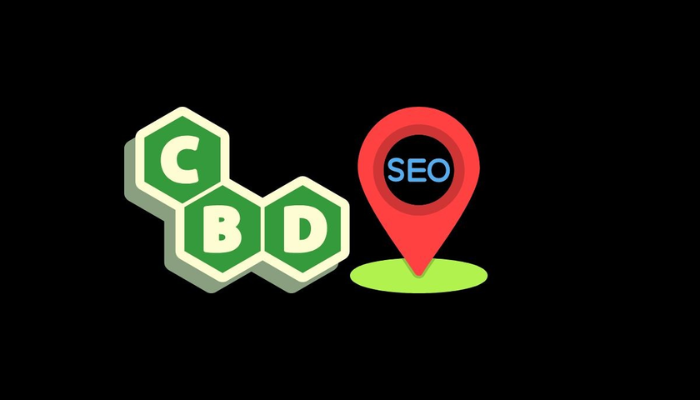
In today’s highly competitive digital landscape, mastering how to create a winning B2B SEO campaign is essential for businesses that want to stand out. The complexity of B2B (Business-to-Business) SEO requires a strategic approach, targeting decision-makers, generating quality leads, and boosting organic visibility. In this guide, we’ll walk you through the critical components of a B2B SEO campaign, helping you implement strategies that not only drive traffic but also convert visitors into valuable clients. Whether you’re new to SEO or looking to refine your existing approach, this comprehensive guide will provide the tools you need to succeed.
Understand Your Target Audience and Market
Before you dive into keyword research or content creation, the first step in how to create a winning B2B SEO campaign is understanding your target audience and market. Unlike B2C (Business-to-Consumer), B2B businesses cater to professionals and companies, so your SEO strategy must appeal to this specific group. Start by conducting thorough market research to identify the pain points, needs, and goals of your target businesses.
By understanding your target market, you’ll be able to craft content that speaks directly to their challenges and offers solutions. Knowing your buyer persona will also help you identify the types of search terms they use, enabling you to focus your efforts on high-value keywords that will generate qualified leads. Consider factors such as the size of the businesses you’re targeting, their industry, location, and the decision-makers you want to reach, such as CEOs, CTOs, or marketing managers.
Incorporating insights about your target audience into your SEO strategy ensures that the content you create is relevant and engaging. This will help increase the chances of your website ranking higher for keywords that matter to your audience. Additionally, a clear understanding of your audience allows you to create personalized content that resonates, fostering trust and improving user engagement.
Comprehensive Keyword Research for B2B SEO
Keyword research is the cornerstone of any SEO campaign, and when it comes to a winning B2B SEO campaign, it’s even more crucial. To craft a high-performing B2B SEO strategy, you need to identify the terms and phrases your target audience is searching for. These are the keywords that will drive the most relevant traffic to your website.
Start by using SEO tools like Google Keyword Planner, SEMrush, or Ahrefs to discover keywords related to your business. Focus not only on short-tail keywords but also long-tail keywords, which are more specific and often have higher conversion potential in B2B searches. For example, instead of targeting a broad keyword like “digital marketing,” a long-tail keyword could be “B2B digital marketing agency for tech startups.” These long-tail keywords are often less competitive and more aligned with user intent.
It’s also important to analyze the competition. Look at the top-ranking pages for your target keywords to understand the type of content and user experience that Google rewards. Pay attention to the content length, keyword density, and on-page SEO factors such as meta descriptions, title tags, and headings. This will help you identify gaps in the market and create content that stands out from your competitors.
On-Page SEO Optimization for Maximum Visibility
On-page SEO plays a pivotal role in ensuring your website ranks for your chosen keywords. To create a winning B2B SEO campaign, your website must be fully optimized for both search engines and users. This means optimizing your web pages for the keywords you’re targeting, ensuring a positive user experience, and improving site speed and mobile-friendliness.
First, optimize your title tags, meta descriptions, and header tags (H1, H2, H3, etc.) with your primary and secondary keywords. A well-optimized title tag and meta description will not only help you rank higher but also improve your click-through rate (CTR) from search engine results pages (SERPs). Remember to keep your meta description between 50 and 160 characters, and ensure it compellingly summarizes the content on the page.
Next, focus on creating high-quality, informative content that is structured to enhance readability. Break your content into short paragraphs, use bullet points for easy scanning, and incorporate multimedia like images and videos to keep visitors engaged. Internal linking is also critical for on-page SEO; link to other relevant pages on your website to help search engines understand the structure of your site and guide users to additional valuable content.
Lastly, ensure your website is mobile-friendly. Google prioritizes mobile-first indexing, meaning that a mobile-optimized site is essential for ranking well. Tools like Google’s Mobile-Friendly Test can help you identify and fix any issues.
Content Marketing: Fueling Your B2B SEO Campaign
Content marketing is at the heart of a winning B2B SEO campaign. When you produce high-quality, relevant, and engaging content, you not only help your audience solve their problems but also improve your website’s authority in the eyes of search engines. Create content that speaks directly to your audience’s pain points, interests, and goals. This could include blog posts, white papers, case studies, infographics, videos, and more.
To maximize the impact of your content, ensure that each piece is optimized for SEO. This includes strategically using your target keywords without overstuffing, optimizing headings, and ensuring your content provides real value. B2B buyers often conduct thorough research before making purchasing decisions, so your content should be designed to educate, inform, and establish your brand as a trusted authority in your industry.
One key component of B2B content marketing is the creation of downloadable assets such as eBooks, guides, and white papers. These resources not only provide value to your audience but also help you collect lead information, which can be nurtured into future business opportunities. Consider implementing gated content—where users must fill out a form to access content—which can help you generate valuable B2B leads.
Link Building for Increased Authority
Building backlinks is an essential tactic in how to create a winning B2B SEO campaign. Search engines like Google use backlinks as a ranking factor, interpreting them as votes of confidence in your content. The more high-quality backlinks you have, the more authority your website will have in the eyes of search engines.
Start by identifying reputable websites within your industry that may be willing to link to your content. You can do this by reaching out to industry influencers, guest posting on high-authority blogs, or offering to contribute valuable resources such as case studies or expert insights. Additionally, consider creating content that naturally attracts links, such as comprehensive guides, research reports, or original studies.
Remember, quality is more important than quantity when it comes to link building. A few backlinks from authoritative sites in your industry can have a more significant impact than numerous low-quality links. Focus on building relationships with other businesses in your industry to create mutually beneficial partnerships that help grow both your SEO and your brand’s reputation.
Conclusion: Achieving SEO Success with a Winning B2B Campaign
Crafting a winning B2B SEO campaign requires a deep understanding of your target market, strategic keyword research, on-page SEO optimization, impactful content marketing, and effective link-building techniques. By implementing these strategies, you can significantly improve your online visibility, drive relevant traffic to your website, and ultimately generate qualified leads that will convert into long-term business relationships.
SEO is an ongoing process, and it requires consistent effort and refinement. Stay up to date with the latest trends, monitor your performance using tools like Google Analytics, and continuously optimize your approach based on what works best for your business. With the right strategies in place, your B2B SEO campaign can position your brand for long-term success.
FAQs
- What is B2B SEO? B2B SEO (Business-to-Business Search Engine Optimization) focuses on improving the online visibility of businesses targeting other businesses as clients, rather than individual consumers.
- How long does it take to see results from B2B SEO? SEO is a long-term strategy, and it typically takes 3 to 6 months to see significant improvements in rankings and traffic.
- What are the most important factors for B2B SEO? Key factors include understanding your target audience, conducting thorough keyword research, optimizing on-page elements, creating valuable content, and building high-quality backlinks.
- How do I choose the right keywords for a B2B SEO campaign? Use SEO tools to identify relevant keywords that your target audience is searching for, including long-tail keywords and terms with high commercial intent.
- Is content marketing important for B2B SEO? Yes, content marketing is crucial. It helps build authority, engage your audience, and attract backlinks, all of which improve your SEO performance.
- What role does link building play in B2B SEO? Link building helps increase your website’s domain authority, signaling to search engines that your content is trustworthy and valuable.
- Should I focus on local SEO for a B2B business? Local SEO can be beneficial for B2B businesses that serve specific regions or cities. Optimizing for local search terms can help attract nearby clients.
- How can I measure the success of my B2B SEO campaign? Use tools like Google Analytics and SEMrush to track traffic, rankings, lead conversions, and other key performance indicators (KPIs).
- Can I do B2B SEO on my own, or should I hire an expert? If you have the time and expertise, you can manage your B2B SEO campaign. However, hiring an experienced SEO professional can accelerate results.
- How often should I update my B2B SEO strategy? Regularly audit your SEO strategy, at least once every quarter, to stay current with SEO trends and industry changes.



